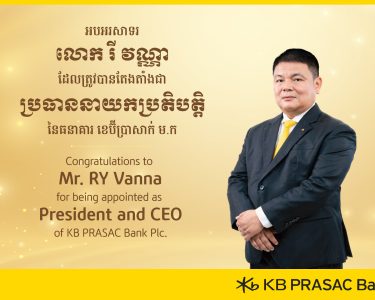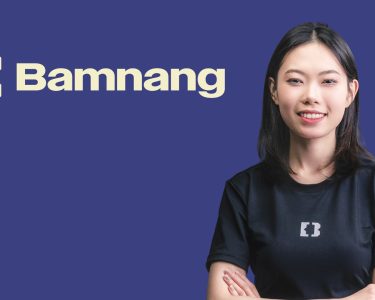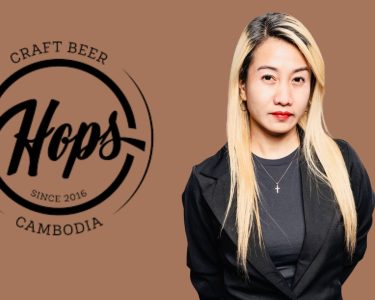By Stew Post
Senior Communications Officer Stew Post sat down with Antoine Bancel, co-founder of Bodia Spa. Over the course of a wide-ranging conversation, the pair discussed the beauty and body-care products that have set Bodia apart from other spas, the stringent certification process for cosmetics, and the opportunities that Cambodia holds for determined entrepreneurs.
Stew: Let’s start with a bit about your background, how you ended up in Cambodia, how you joined Bodia, and your journey with the company.
Antoine: I arrived in Cambodia in 2007, and, at that time, I was working for a company in transportation and logistics. I wasn’t involved in the original concept of Bodia Spa, but early on, it became clear that there was a real need for [wellness] products. All the products were imported from Thailand, and we thought, “Why don’t we make them in Cambodia?” We had everything on hand. The farms were amazing, and Cambodia has a long history of traditions around plants and natural remedies —medicinal, traditional, even spiritual.
Read More: EuroCham Cambodia Interview: Denis Barre, Co-Founder of Convergences Executive Search
I’m an engineer, so in my free time, I thought, well, essential oil is basically the same distillation process as alcohol. Making soap is something you learn in school in France. You can find a lot of info online too—about pressing coconut oil or making mixtures.
So, we started doing some experiments. I showed Sylvain Perrier and Quentin Clausin, who would later become my partners, that making basic cosmetics wasn’t that difficult. And then we were off. We began developing recipes and packaging. I had no clue that I would still be here 18 years later and that we would have built what we built.

Stew: In those 18 years, your operations have continued to grow and change. How do the products differ today compared to before?
Antoine: In terms of products, it’s definitely changed. Before COVID, our main sales were driven by the high demand from European and tourists. So we followed the flow and it was a very good dynamic. Our later ambition was to export the products. So, when COVID hit, It offered a chance to turn our products and development towards the local market and Cambodian-specific requests in term of cosmetics and skin care.
The strategy we adopted was to create larger product formats, more affordable formulas, and adjust scents, textures, and features based on what Cambodian customers wanted. We developed some products specifically for Cambodians, based entirely on Cambodian preferences. Previously, we developed products based on our own tastes, interests and opportunities that showed up along the way. But after COVID, we conducted more market research and became much more focused on the Cambodian core market. Today, 60% of our sales are to Cambodian customers, and 40% to international customers.
Stew: Bodia’s wellness product line has grown from a household operation to full-scale factory production with European standards. How has your branding and marketing strategy evolved to keep up?
Antoine: It’s still an ongoing process because we keep growing and trying to reorganise. Initially, it was a very small team, and things were pretty organically managed. But as time went on, we added more people to the team.
You tend to go with the flow most of the time. Eventually, you realise you need to create marketing materials, advertise—but then you also realise marketing doesn’t just mean offline efforts and printing. Social media started to emerge and develop. Around 2010–2011, we all discovered the online market created by Facebook at the same time and thought, “Oh my God, we need to go digital.” So, we brought someone in.
Then we started selling products in travel retail. Travel retailers would tell us, “Hey, we need furniture,” so we’d have to develop it, build it, make it—it just kept evolving. Today, it’s TikTok. That didn’t even exist for us three or four years ago. So again, we’re exploring it and trying to tame that kind of technology.
Now, the area we’re really trying to be more proactive in is strategic planning. That’s why I’ve stepped away from operations a bit to look at the bigger picture with the other founders of Bodia. We now have a strategic plan for the next three to five years. We plan to expand our production to match local and international demand, which we are finally starting to develop.
Stew: With Bodia’s international roots, are there plans to expand beyond the Cambodian market and export internationally? If so, what kind of processes have you had to undergo to prepare for that next step?
Antoine: Yes, another big plan we have now is exporting. But, exporting means additional regulation, registration, certifications, and naming on top of those we’ve already implemented. I have a very full to-do list.
The ISO certification was completed with a private sector partner two years ago. We were audited last week, and everything passed—we’re very happy with that. Now we’re focused on securing product declarations and obtaining all of the required certificates for export.
In fact, we already have many distributors interested in importing our products—Europe, Australia, the South Pacific, China. We even have a structure in place in Europe, ready for official import, online sales, logistics, and storage. All of that is ready—I just have to press the button once we have all the certificates.

Stew: That’s exciting! But it does sound challenging. Within the sector of wellness products, what are some of the key obstacles and opportunities to operating in Cambodia?
Antoine: When you want to certify products according to European standards, you need to test your products in several ways. So, one big challenge is investment: a lot of time, and equipment were required.
When you’re dealing with products that you put on the skin, the face, near the eyes, it gets very sensitive. You have no choice but to strictly monitor formulation, IFRA standards, European regulations, dosages, processes, and water purity. There are many things we can’t really do here. For example, patch tests can technically be done internally, but there are companies specialising in them, and that kind of service doesn’t exist in Cambodia. The challenge test doesn’t exist here either. Toxicological assessments also can’t be done here. There are some limitations.
But there are also countless opportunities. Just look at the oil industry alone—cosmetics rely on oils: avocado oil, cashew nut oil, sacha inchi oil, sesame oil. You name it. There’s no extraction [industry] for these oils here.
I’ve met local producers who came to us and said, “Look, I pressed this oil in my workshop. Do you want to buy it?” And I say, “Yes, I’d love to,” but while it might be fine for personal use, turning it into an industrial product with a full cosmetics-grade compliance that is reliable in medium to high volumes is another challenge for those producers. But whenever they’re ready, we will be able to work together.
If there was a producer that did all the processes—having it cleaned, filtered, and properly tested—I could then get proof, and certificates, so I could use that oil.
Stew: What advice would you give to small businesses in Cambodia, whether in this industry or more broadly?
Antoine: The first thing would be: don’t put the Cambodian market to the side. And it’s not that we deliberately ignored it—it’s just that we were going with the flow. At the time, tourism was growing 10–12% every year, so that market was pulling us forward.
I’d also say, don’t neglect your digital marketing. That was a major turn for us, and to be honest, we are still figuring out how to do it well. It’s difficult to admit that I’m a 45-year-old European male, and I just don’t fully understand what the new generation of 20-year-old Cambodians want—what they like, what they expect. On that front, we definitely trust our team members, we research our customer base and try to remain as open-minded as possible without forgetting the roots of our project.
We’re always learning through practice and learning from our mistakes. We’re building on our past experiences and constantly improving. Beyond that, just keep your head down and stay focused.





